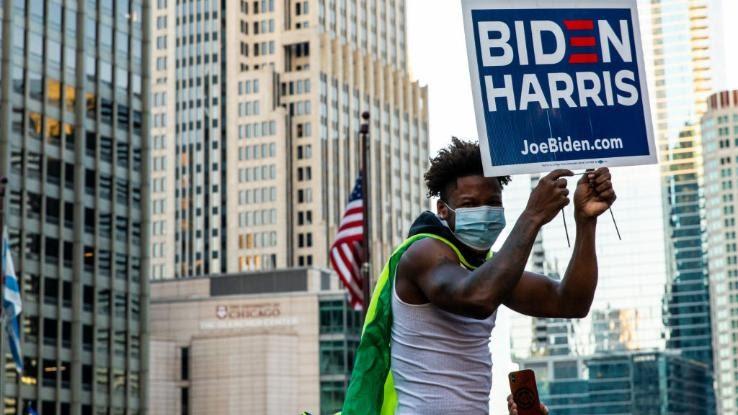
Say what you will about 2020, but it’s certainly been a year that none of us will ever forget — to put things as gently as possible. From mass toilet paper shortages to a massively contentious presidential election, the start of this decade has ushered in more than its fair share of historic events.
Considering the fact that many of us have been sheltering in place for months on end — distracted by a global health crisis and constantly bombarded with progressively demanding news stories — it’s easy to see why many of us are looking back on 2020 as one big blur. It’s been exactly that: a difficult, often-heartbreaking and sometimes-optimistic blur. But with all the big things that happened, it’s important to keep some perspective — if only on the bigger events. These are the stories that defined each month of what feels like the longest year we’ve ever been through.
January: Kobe Bryant Killed in a Helicopter Accident
On January 26, legendary basketball player Kobe Bryant, his 13-year-old daughter Gianna and seven others were killed in a tragic helicopter accident on their way to a basketball game at Bryant’s Mamba Sports Academy. Foggy conditions and light rain blanketed the area around Calabasas, California — the site of the incident — that day, and although the final cause of the crash remains unknown, the weather may have caused the pilot to lose control of the aircraft.
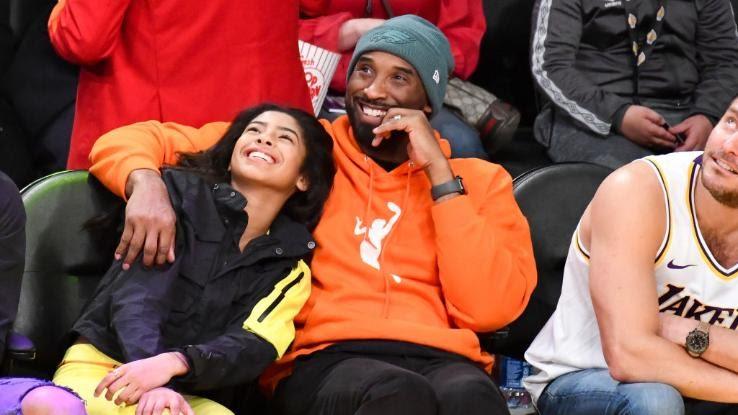
Millions of people around the world mourned Bryant and his daughter, including members of the Los Angeles Lakers, which was the only professional team Bryant played for during his entire decades-long career. Tributes began popping up as far away as Japan and the Philippines, and the Lakers later dedicated their October 2020 NBA Championship win to Bryant’s memory. “He had zero flaws,” noted fellow basketball legend LeBron James, and he leaves behind the legacy of being one of the most talented, record-breaking stars of the NBA.
February: “Parasite” Sweeps the Oscars
This sinister, slow-burn tale of a down-on-their-luck family slowly infiltrating the lives of a wealthy family while addressing important subjects like social inequality and wealth disparities garnered critical acclaim for everything from its themes to its execution. These elements, coupled with the film’s slow transition from all-out riotousness to unsettling horror, fittingly secured Bong Joon-ho’s Parasite‘s place in the pantheon of must-see cinema. The film made history not only on the screen but at the 92nd Academy Awards, too.

Ultimately winning the Oscar for Best Picture (among a handful of other awards), Parasite was the first non-English-language film to take home the show’s top prize — a decision that led industry leaders to deem the movie “the most important and game-changing Best Picture winner in Oscar history.” Why so much fanfare? According to Los Angeles Times film critic Justin Chang, Parasite “startled the Academy into recognizing that no country’s cinema has a monopoly on greatness.” After so long, the organization’s “efforts to diversify its ranks and become a truly global institution” were finally making a long-overdue impact and giving cinematic masterpieces — wherever they may come from — the recognition they deserve.
March: COVID-19 Is Officially Declared a Pandemic
It’s not a stretch to say 2020 will forever be associated with the novel coronavirus and COVID-19, the disease that the pathogen causes. First emerging in Wuhan, China, in January of 2020, it wasn’t until March 11 — enough time for hundreds of thousands of people around the globe to contract the mysterious illness — that the World Health Organization officially deemed the coronavirus a pandemic.
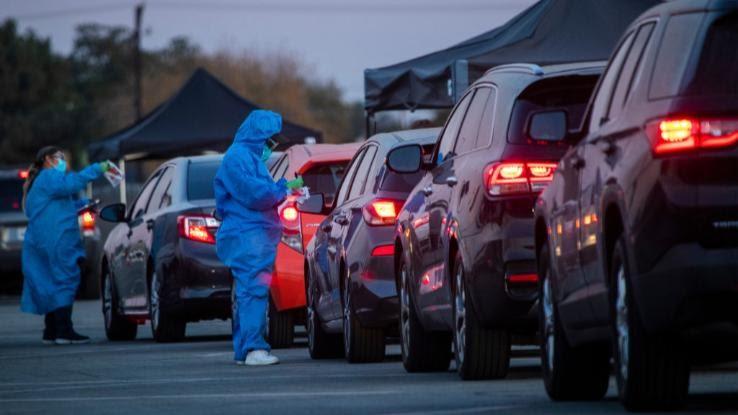
On March 13, Donald Trump declared the virus a national emergency, prompting states to enact widespread quarantine procedures and the Centers for Disease Control and Prevention (CDC) to begin detailing various measures to slow the spread of COVID-19. By December of 2020, the virus had infected over 76 million people around the globe, resulting in a worldwide death toll of over 1.5 million.
April: Harry and Meghan Abandon Their Royal Duties
At the beginning of April, Britain’s Prince Harry and his wife Meghan — the Duke and Duchess of Sussex — officially made good on their January announcement that they’d be resigning from their positions by no longer serving as working members of the British royal family or representing the Queen. The first of the month marked their first day not using their royal titles. The couple shocked millions around the world when they announced that they’d be taking a step back from the publicity that comes with royal roles, opting instead to live a quieter, more private life while raising children and building their own brand.
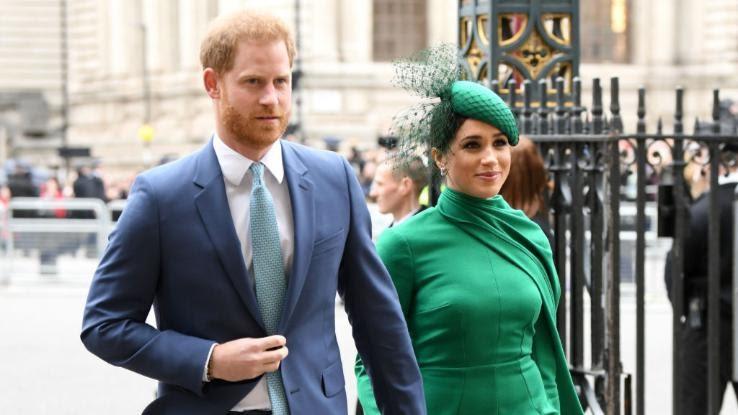
Since April, they’ve stopped receiving public funds for their work and are no longer using the title “Royal Highness” — but they have kept the Duke and Duchess of Sussex designations. The couple has spent the months since their official departure navigating the COVID-19 pandemic, raising their son Archie and building a new life in Santa Barbara, California.
May: George Floyd Is Murdered, Sparking International Protests
On May 25, George Floyd, a 46-year-old Black man, was arrested and murdered by Minneapolis police officers after a convenience store clerk told 911 Floyd had used a counterfeit $20 bill to make a purchase. His horrific death, which occurred while police officers kneeled on his neck and body, was captured on video and ignited rightful outrage among Americans who reacted with horror. Millions channeled this energy by taking to the streets in mass numbers to protest Floyd’s death, demand justice and call for an end to the police brutality that disproportionately targets people of color.
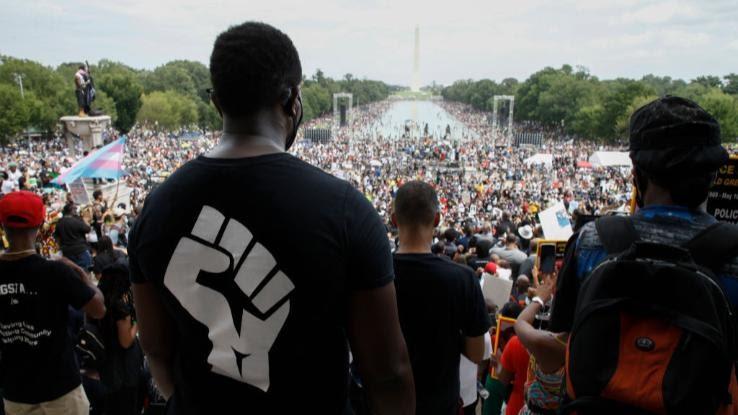
The protests, many of which were organized by the civil rights group Black Lives Matter (BLM), continued throughout much of 2020 in cities around the country. Though these largely peaceful marches were sometimes met with government retaliation, the resulting movement became the largest in U.S. history. Although the fight for racial equality continues, BLM and this year’s protests have sparked some necessary changes in police reform, in education, in the medical community and even in the entertainment industry — when those changes were needed more than ever.
June: Joe Biden Officially Becomes the Democratic Presidential Nominee
2019 was a bit of a whirlwind — not a full-on tornado like 2020 — when it came to news stories, but politics were still at the forefront. You might remember that there were almost 30 Democratic Party presidential candidates throwing their hats in the ring and participating in primary debates that began in June of 2019. As the months wore on and TV theatrics continued, many of us were left wondering if a nominee would ever actually emerge.
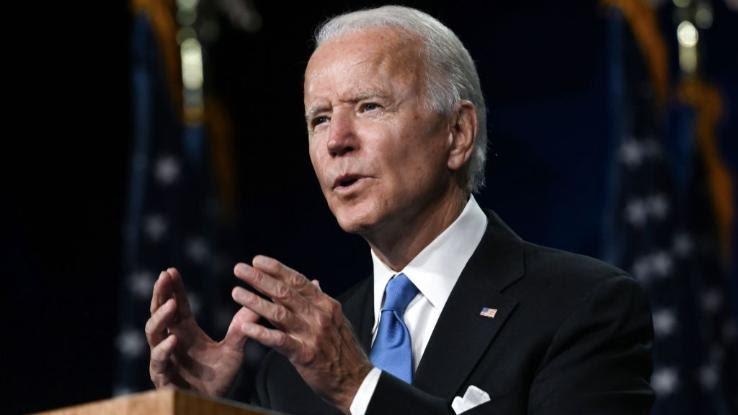
A frontrunner did eventually surface, after 11 debates and months of speculation. Joseph R. Biden, longtime Delaware Senator and 47th vice president of the United States, announced on Twitter on June 5 that he’d secured the more than 1,991 delegates needed to officially receive the party’s nomination. This maybe wasn’t a huge surprise, considering that all the other former Democratic presidential candidates had withdrawn from the race by April. Nonetheless, it became technically official, and the party finally had a clear picture of its roadmap to the election.
July: California Wildfires Take the State by Storm
California’s wildfire season typically lasts each year from July to November, ending when the first big rainfall of autumn takes place and dampens the flames. 2020, however, saw an extended season that had become “the worst in state history as far as the amount of land scorched” according to CNN — and that was just by September. While a few smaller fires sparked in May and June, July saw a major uptick in occurrences and a spate of blazes that ultimately torched hundreds of thousands of acres. The Red Salmon Complex fire, which began on July 26, on its own burned nearly 150,000 acres.
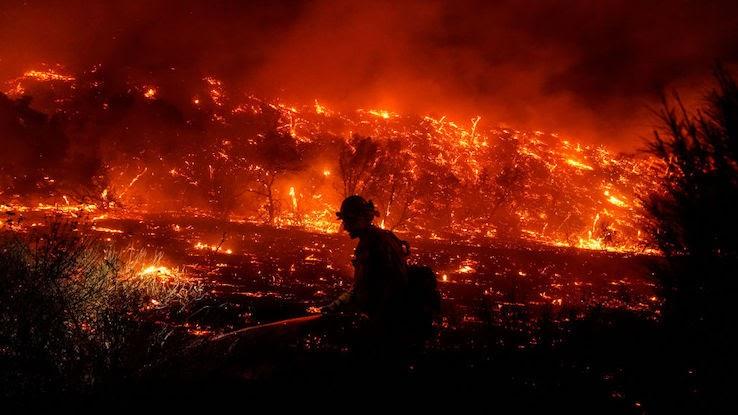
These wildfires set the stage for the rest of the tragic season: Five of California’s six largest fires took place in August and September of 2020, creating hellish landscapes, triggering emergency evacuations and blanketing much of the state in thick, harmful smoke. Several of the year’s more than 9,600 fires burned well into December, and the reason is clear. “Climate change plays an undeniable role in the unprecedented wildfires of recent years,” explains Scientific American. “More than half of the acres burned each year in the western United States can be attributed to climate change.”
August: Kamala Harris Becomes the Vice Presidential Nominee
For months, the world wondered whom potential presidential nominee Joe Biden would select as his running mate. Once he was clearly becoming the presumptive nominee, he “vowed to choose a woman as his potential vice president,” and many began speculating which name out of a variety of Senators and state leaders he’d ultimately pick.

On August 11 — just days before their nomination at the 2020 Democratic National Convention — Biden officially announced that his onetime Democratic primary rival and Junior Senator of California, Kamala Harris, would become the vice presidential candidate. While this announcement was long-awaited, it was also one for the history books. Harris became the first woman and the first person of color to receive the vice presidential nomination of a major U.S. political party, bringing some much-needed diversity to the White House.
September: The Nation Mourns Ruth Bader Ginsburg
In the wake of Kamala Harris making headlines with her historic nomination, the United States lost one of the greatest champions of gender equality that we ever had the privilege of knowing. On September 18, 2020, Associate Justice Ruth Bader Ginsburg passed away due to complications of cancer at the age of 87. Ginsburg spent 27 years serving on the Supreme Court — and dedicated an entire lifetime to ending discrimination and breaking barriers.
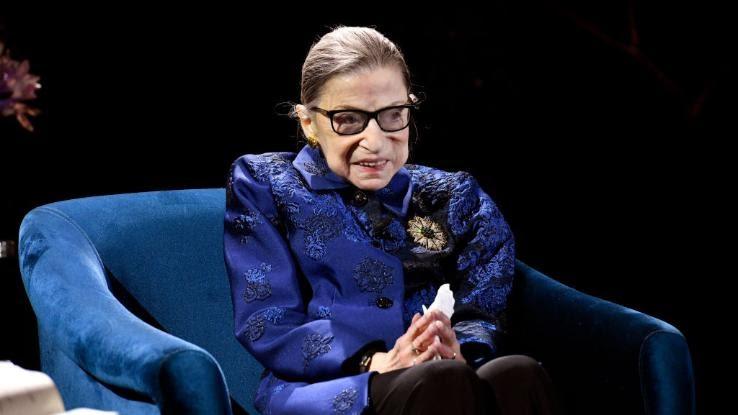
From her early days working as a legal researcher and law professor to her later years as a judge and eventual Associate Justice, Ginsburg argued for our equality in every case — and she never stopped pushing for our right to live authentically, either. It is because of her that many of us are allowed to own our destinies, and her contributions to the justice system have rightfully secured her a spot in history as a prominent feminist icon.
October: Presidential Debates Go Haywire
On the evening of October 1, Donald Trump announced that he and his wife Melania had tested positive for COVID-19 — meaning he was potentially already infected when he participated in the first presidential debate with Biden on September 29. Trump was subsequently admitted to Walter Reed National Military Medical Center, where he made a series of video appearances and later drove by supporters outside the facility while he was still undergoing treatment.
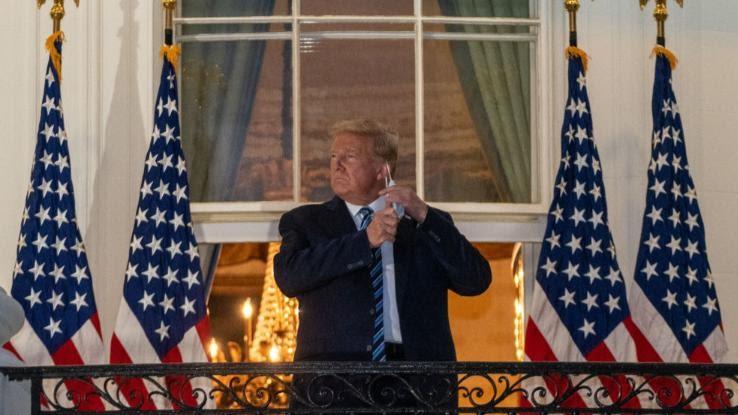
The second debate of three was scheduled to take place on October 15. Trump had returned to the White House on October 5 and began hosting public events in the days following his discharge from Walter Reed. Organizers scheduled the second debate to take place virtually, with the candidates participating via livestream from remote locations, but Trump refused to comply with these limitations, instead choosing to participate in his own town hall on NBC. The scheduled third debate took place as planned on October 22, making 2020 the first election year since 1996 in which only two presidential debates happened.
November: Joe Biden Wins the Presidential Election
After one of the most divisive presidential elections in U.S. history, November finally revealed a victory for President-Elect Joe Biden and Vice President-Elect Kamala Harris. Early on in the month, after days of statewide recounts following an election with one of the largest-ever turnouts and unprecedented levels of absentee voting, Biden and Harris appeared at a televised acceptance event in Wilmington, Delaware.
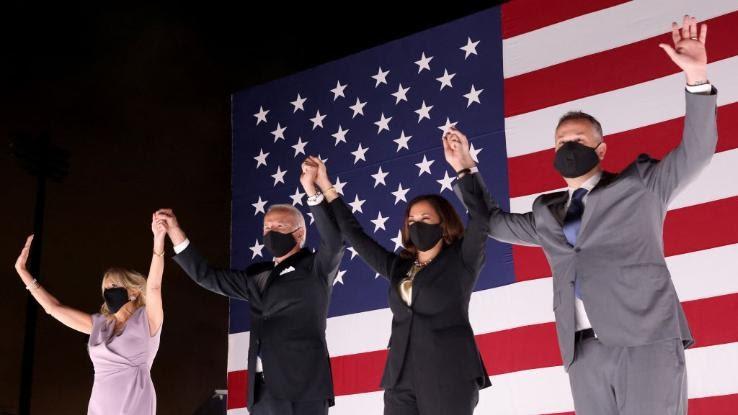
Throughout his speech, Biden called for unity among Americans as he delivered a message of hope for the coming four years. “I will work as hard for those who didn’t vote for me as those who did,” Biden reassured voters. “Let this grim era of demonization in America begin to end here and now… There has never been anything we have not been able to do when we have done it together.”
December: COVID-19 Vaccines Are Approved
After a year of historic firsts and significant lows, a light finally appeared at the end of the tunnel in the last moments of 2020: After months of extensive development, testing and fast-tracking, pharmaceutical giant Pfizer’s COVID-19 vaccine candidate received emergency use authorization from the U.S. Food and Drug Administration. Although the vaccine still needs to undergo various other rounds of longer-term testing, the first doses were administered to healthcare workers on December 14.
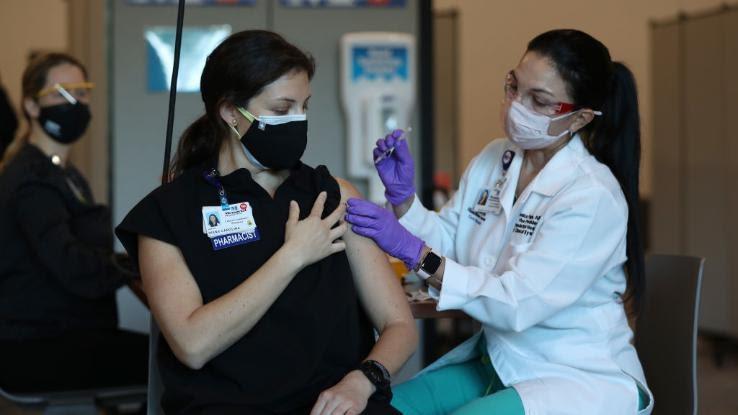
As COVID-19’s toll on the United States surpassed 300,000 deaths, the vaccine arrived at a moment when many of us needed it most — not just to avoid contracting the illness, but also to buoy ourselves and boost our morale at the end of what’s been a dark and difficult year. As the vaccine continues to become more widely available, hopes are high that a return to a new form of normal is on the horizon for 2021.






